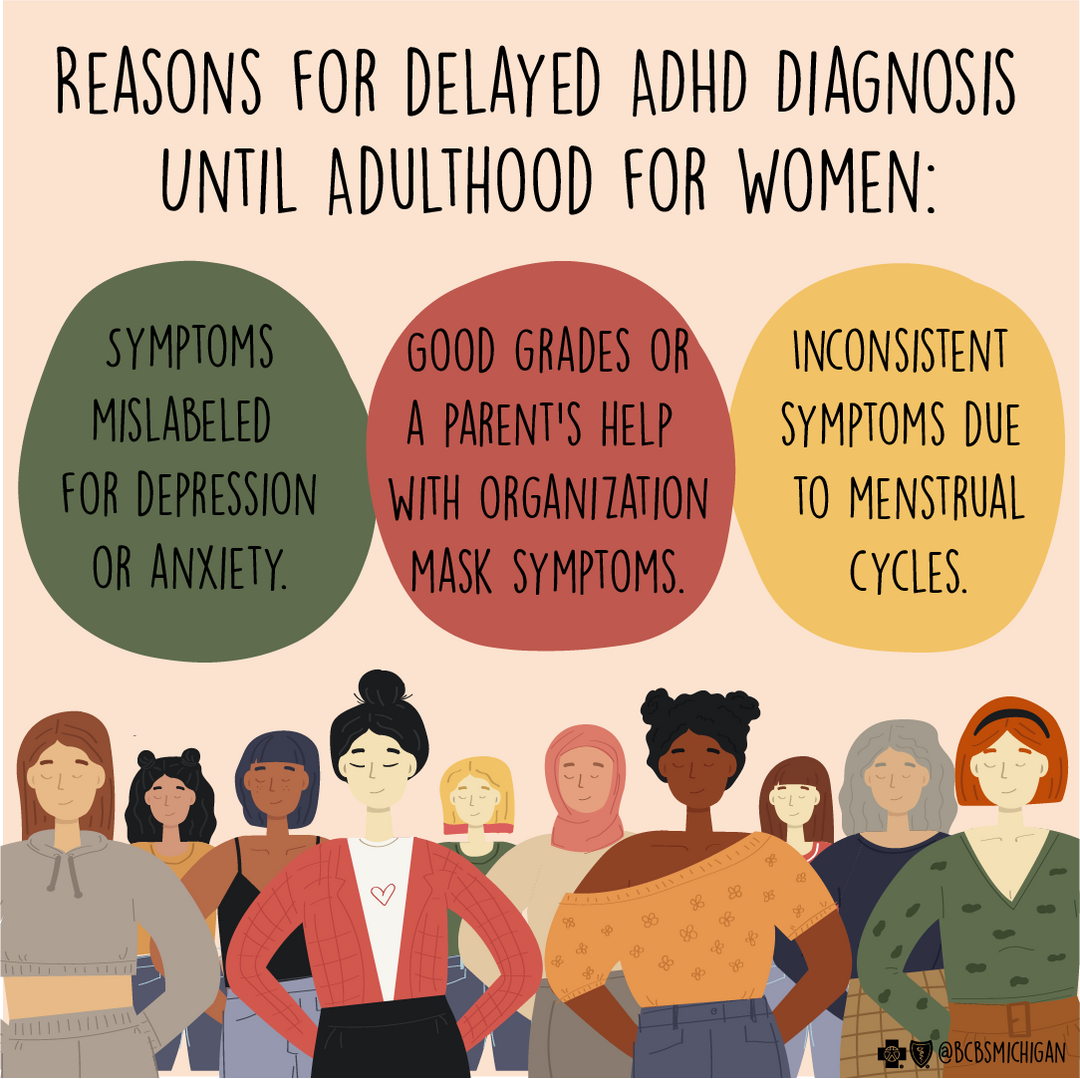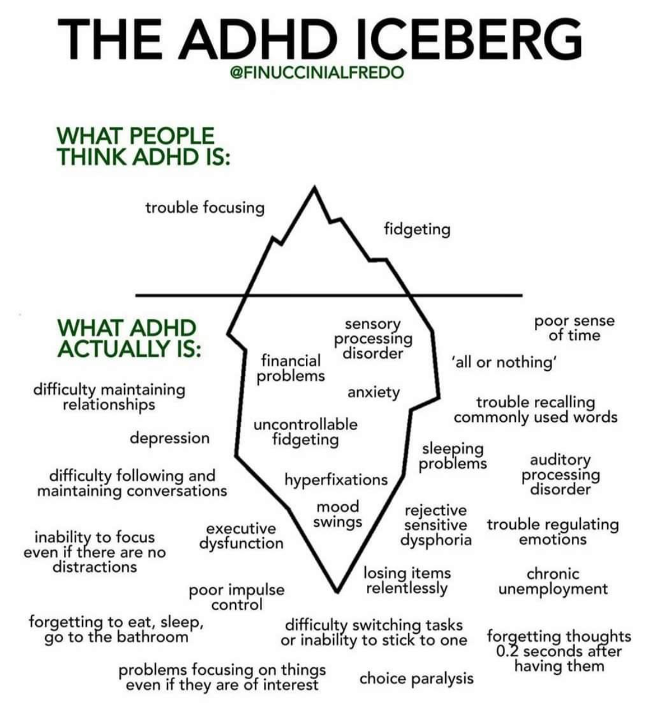Understanding and Addressing the Hidden Struggles of Women with ADHD
Attention deficit hyperactivity disorder (ADHD) has long been perceived as a predominantly male disorder, but recent research has shed light on the hidden struggles of women and girls with ADHD. While the core symptoms of hyperactivity, impulsivity, and inattention remain the same across genders, the expression and diagnosis of ADHD in females often differ, leading to under-recognition and undertreatment of this neurodevelopmental condition.
(Image Source: Mi blues perspectives On ADHD in women)The Diagnostic Conundrum:
Historically, ADHD has been viewed through a male-centric lens, resulting in a lack of understanding of how it manifests in females. Girls with ADHD tend to exhibit fewer externalizing behaviors commonly associated with the disorder, such as motor hyperactivity, leading to underdiagnosis. Instead, they often display symptoms of inattention, mood disorders, and anxiety, which are frequently misinterpreted as emotional or disciplinary problems rather than signs of ADHD.
Social and Cultural Influences:
Social norms and gender expectations play a significant role in how ADHD is perceived and diagnosed in girls. Society often expects girls to embody both traditional feminine and masculine qualities, making it challenging for those with ADHD to conform to these rigid standards. Girls may expend considerable energy concealing their symptoms to avoid social judgment, further exacerbating the under-recognition of ADHD in this population.
Functional Impairment and Long-Term Outcomes:
Undiagnosed and untreated ADHD in females can have profound long-term consequences, including interpersonal difficulties, academic underachievement, and occupational challenges. Despite exhibiting fewer externalizing behaviors, adolescent girls with ADHD are at high risk of psychological distress and impairment, leading to pervasive functional impairments that persist into adulthood.
The Importance of Early Identification and Intervention:
Early identification and intervention are crucial for mitigating the adverse outcomes associated with ADHD in females. Healthcare providers must be educated about the diverse presentation of ADHD in girls and women to facilitate timely diagnosis and access to appropriate treatment options. Comprehensive assessment tools that consider gender differences in symptom expression should be utilized to ensure accurate diagnosis.
Addressing Stigma and Promoting Empathy:
Stigma surrounding ADHD further compounds the challenges faced by women and girls with the disorder. Efforts to destigmatize ADHD and promote empathy and understanding are essential for fostering a supportive environment for individuals with ADHD. Increased public awareness and education can help dispel misconceptions about the disorder and reduce the social barriers to seeking diagnosis and treatment.
(Image Source: The ADHD Iceberg from Mona Klausing, LMFT)Empowering Women with ADHD:
Empowering women with ADHD involves providing them with the resources and support they need to thrive despite their condition. This includes access to evidence-based treatments, such as medication and therapy, as well as accommodations in educational and workplace settings. Additionally, fostering a sense of community and peer support can help women with ADHD feel validated and understood in their experiences.
In conclusion, addressing the hidden struggles of women and girls with ADHD requires a multifaceted approach that encompasses early identification, de-stigmatization, and empowerment. By recognizing the unique challenges faced by females with ADHD and advocating for gender-sensitive diagnostic practices and support services, we can ensure that all individuals affected by this disorder receive the care and support they deserve.



Comments
Post a Comment